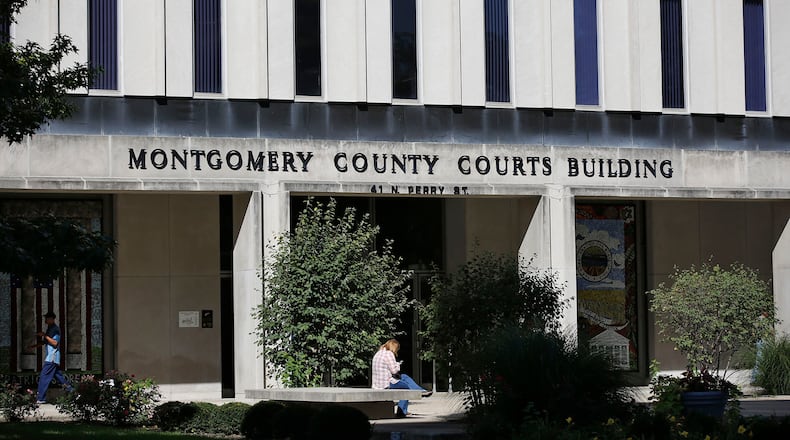Dayton police also reported a decrease in arrests on drug possession and drug trafficking charges. In 2020, officers made 817 arrests in connection to drug possession and 49 arrests in connection to drug trafficking. That’s less than in 2019, when officers made 60 trafficking arrests and 956 possession arrests.
“Due to COVID-19, some types of police operations were modified for much of 2020, including some proactive patrol efforts. When possible, we were able to continue addressing drug complaints in neighborhoods. We do encourage anyone with a complaint about potential drug use or sales in their area or neighborhood to call 937-333-COPS or Miami Valley Crime Stoppers at 937-222-STOP,” Dayton police said in a statement.
The Centers for Disease Control and Prevention and Ohio drug abuse recovery groups throughout 2020 warned that the stresses of the pandemic, social justice unrest and other factors were a formula for potential drug relapses.
“The disruption to daily life due to the COVID-19 pandemic has hit those with substance use disorder hard,” CDC Director Robert Redfield said in a statement. “As we continue the fight to end this pandemic, it’s important to not lose sight of different groups being affected in other ways. We need to take care of people suffering from unintended consequences.”
In Montgomery County, more than 300 people died from accidental drug overdoses -- more than 2019 and 2018. However, there were fewer accidental overdoses than in 2017 during the peak of the heroin epidemic.
Data from the Montgomery County Common Pleas Court specialized dockets, which handles some of the cases related to drug crimes, shows 124 new cases were referred to the court in 2020 as of the end of November. In 2019, more than 170 cases were referred to the specialized dockets, which include men’s drug court, women’s therapeutic court and veterans treatment court.
“We take referrals who meet certain criteria, such as higher risks and higher need cases,” Terra Bechtol, supervisor of specialized dockets said. “We typically do not take first-time felony offenders who have a limited treatment history, and recommend those cases for basic supervision. In the specialized dockets, we are primarily looking at multiple treatment attempts (completions and failures), those who need a more structured level of supervision and services, as well as the severity of drug use.”
Bechtol said those referred to drug court undergo a more intense treatment plan and usually have to report to probation officers and the courts more often than other supervision options.
And while there has been a decrease in felony-level drug indictments and referrals, Bechtol said 2020 has provided new challenges as the courts work to keep people on the path to recovery.
“We’re still holding people accountable, but we’ve had to be more creative,” she said. “Instead of the traditional structure, we increased reporting, we needed to be careful that not as many people are coming into the office at once.”
They had used a 24-hour or 48-hour jail sanction, but they did not want to use the jail because of the pandemic.
“We had to be more creative, so we started to look at electronic monitoring, our reporting center, additional programming,” Bechtol said.
She also said it is unclear why the number of new cases had dropped in 2020, but pointed to shutdowns caused by COVID-19 as a possible reason. The Montgomery County Common Pleas Courts operated at a reduced level in March through June of this year, and many cases have been continued because of the consequences of the pandemic.
The courts have since restarted, but not without changes. Anyone who enters the courtroom must wear a mask and signs mandating masks and social distancing have been placed throughout the building. Plexiglass has been installed in the courtrooms as well to sitting areas isolated and air cleaning machines were purchased to prevent the spread of COVID-19.
Bechtol said since June, the specialized courts have also been slowly getting back to a normal schedule, but are being cautious to ensure the safety of both staff and clients.
“We’re trying to focus on those that are really struggling and not really putting so much focus on those who are doing well or are in recovery,” she said. “We’ve had to adjust the way we do business and the way the court does business. Before the pandemic, some of our dockets would be 50 people a week. And we obviously don’t want 50 people coming in at once.”
She said the drug courts have done a few virtual dockets and are bringing in people who need the constant structure.
New case referrals to Montgomery County Common Pleas specialized dockets:
2020 (as of Nov. 30): 124
2019: 178
2018: 138
2017: 211
2016: 278
About the Author

